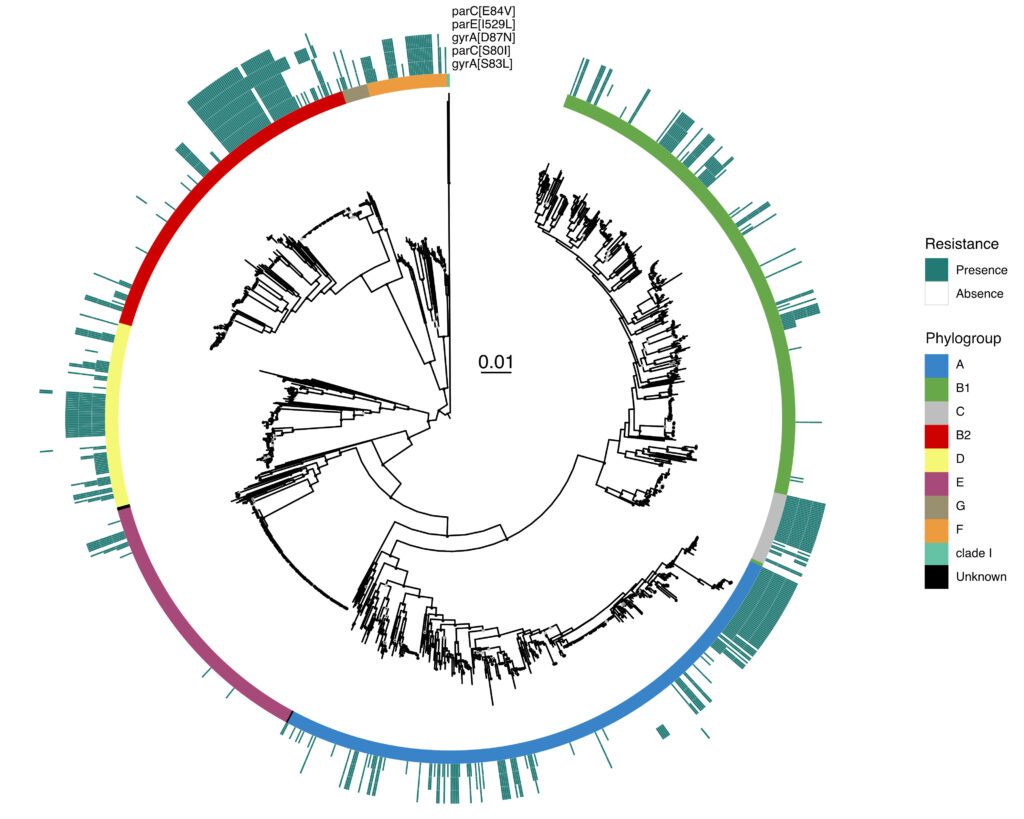
Bacterial lineages acquire novel traits at diverse rates in part because the genetic background impacts the successful acquisition of novel genes by horizontal transfer. Yet, how horizontal transfer affects the subsequent evolution of core genes remains poorly understood. Here, we studied the evolution of resistance to quinolones in Escherichia coli accounting for population structure. We found 60 groups of genes whose gain or loss induced an increase in the probability of subsequently becoming resistant to quinolones by point mutations in the gyrase and topoisomerase genes. These groups include functions known to be associated with direct mitigation of the effect of quinolones, with metal uptake, cell growth inhibition, biofilm formation, and sugar metabolism. Many of them are encoded in phages or plasmids. These groups encoded functions providing latent phenotypes of antibiotic low-level resistance, tolerance, or persistence under quinolone treatment. The mutations providing resistance were frequent and accumulated very quickly. Their emergence was found to increase the rate of acquisition of other antibiotic resistances setting the path for multidrug resistance. Hence, our findings show that horizontal gene transfer shapes the subsequent emergence of adaptive mutations in core genes. In turn, these mutations further affect the subsequent evolution of resistance by horizontal gene transfer. Given the substantial gene flow within bacterial genomes, interactions between horizontal transfer and point mutations in core genes may be a key to the success of adaptation processes.
To find out more, please read the full story recently published in Molecular Biology and Evolution






